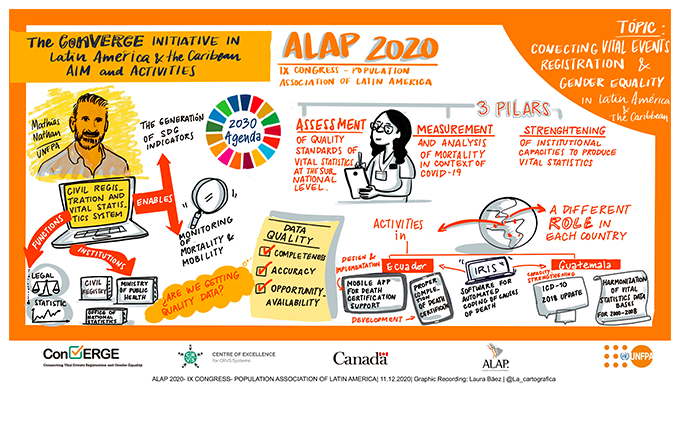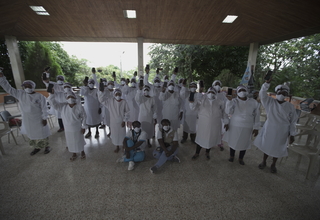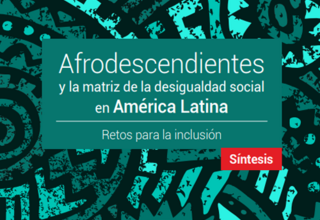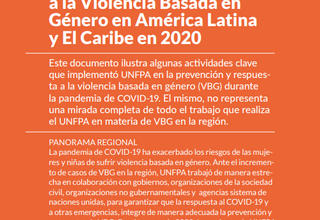LATIN AMERICA AND THE CARIBBEAN - In December 2020 as part of its strategic work to leave no one behind, the regional office of the United Nations Population Fund (UNFPA) for Latin America and the Caribbean, the ConVERGE initiative and the Latin American Association of Population (ALAP) organized two round tables within the IX Congress of the ALAP. These round tables presented findings on the impact of the COVID-19 pandemic on mortality and the challenges associated with the production of vital statistics through the lens of gender inequality in the region. The main contents of these two round tables were transformed into infographics.
The first round table called Connecting vital events registration and gender equality in Latin America and the Caribbean (Conectando el Registro de Eventos Vitales y la Equidad de Género en América Latina y el Caribe, in Spanish), presented and discused the results of the ConVERGE initiative in Latin America and the Caribbean, which focused on assessing sex-differentials in completeness and quality of birth and death registration data at the sub-national level, and improving civil registration and vital statistics systems in Colombia, Ecuador, and Guatemala.
The second round table, Death Registration and Mortality Measurement in Latin America and the Caribbean in times of COVID-19 (El Registro de Defunciones y la Medición de la Mortalidad en América Latina y el Caribe en tiempos de COVID-19 in Spanish), discussed data issues and approaches to examining mortality in the region. The four papers presented were selected from a call for papers from a research grant by ALAP and UNFPA entitled "Leave no one behind: challenges for the advancement of Agenda 2030 in the framework of COVID-19 in Latin America and the Caribbean".
Excess mortality due to COVID-19
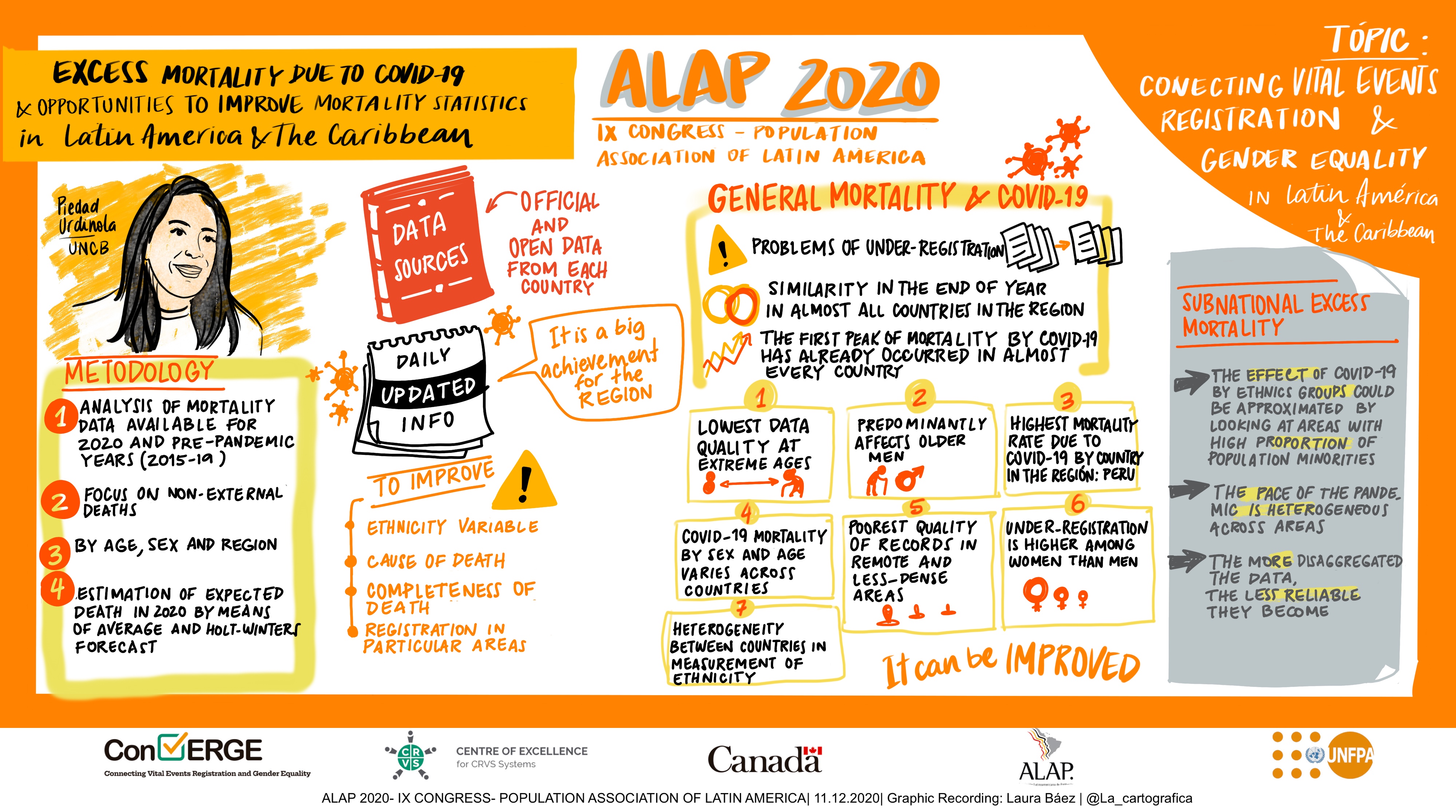
The presentation delivered by Piedad Urdinola from the Universidad Nacional de Colombia, Bogotá, addressed the estimation of excess mortality in 2020 by age, sex, and geographical area, using publicly-available data until September 30, to approach the effect of COVID-19 on mortality in selected countries in Latin America and the Caribbean. It was found that countries with available data (Chile, Colombia, Ecuador, and Peru) exhibited a higher number of deaths in 2020 compared with the same period in previous years. The incidence of excess mortality was higher among older adults and in specific geographical areas.
Analysis of the completeness of death registration in Colombia, Ecuador and Guatemala
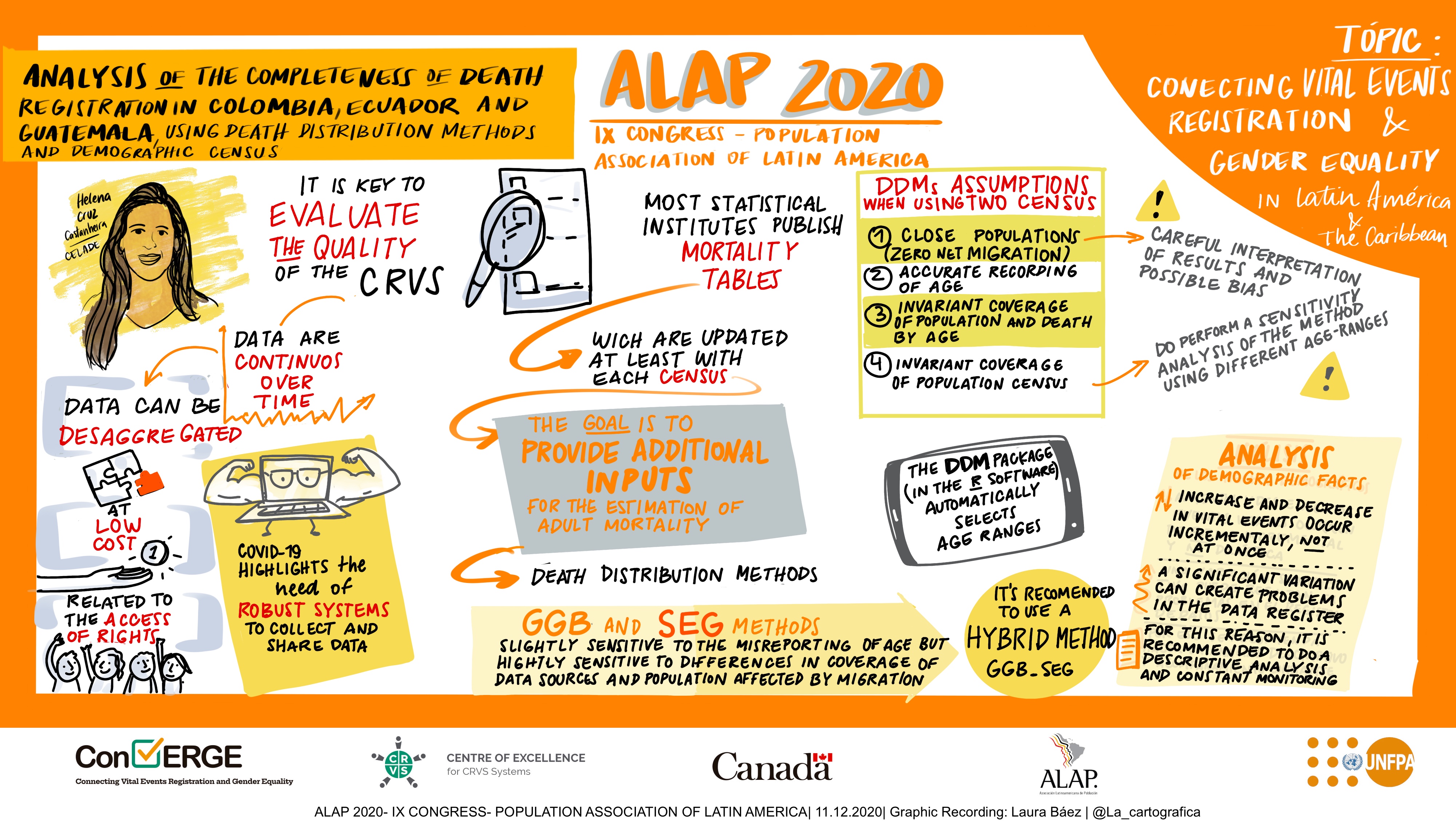
Helena Cruz from the Population Division of the Economic Commission for Latin America and the Caribbean (ECLAC-CELADE), addressed the completeness of death registration at the subnational level in Colombia, Ecuador, and Guatemala, using the death distribution methods (DDM) and data from past censuses. She showed that the application of DDM provided consistent results across countries, especially when using the ‘hybrid approach’ -integrating the General Growth Balance method (GGB) and the Synthetic Extinct Generations method (SEG). The speaker stressed the importance of conducting ongoing analysis of the historic series of deaths at the national and sub-national level to identify potential issues with data recording and processing.
Quality of vital statistics
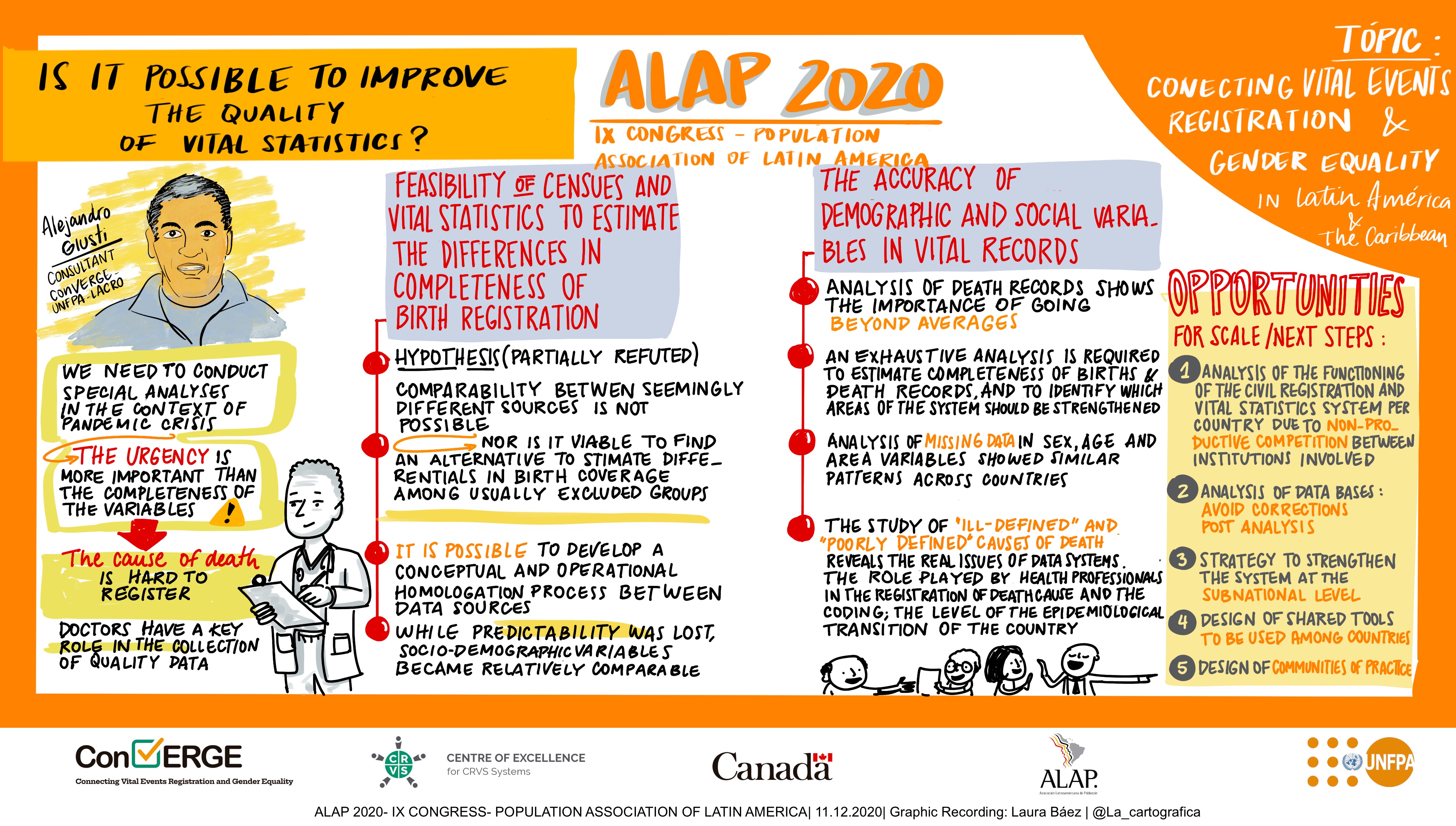
Alejandro Giusti, a consultant to UNFPA’s Latin America and Caribbean Regional Office, examined the quality of vital statistics in Colombia, Ecuador, and Guatemala. Among the factors affecting the quality of birth and death data, he identified: i) the high proportion of missing information in critical variables, such as ethnicity, particularly in some geographic areas, and ii) the differences in the conceptualization of these variables across population data sources.
Leave no one behind’ and gender equality
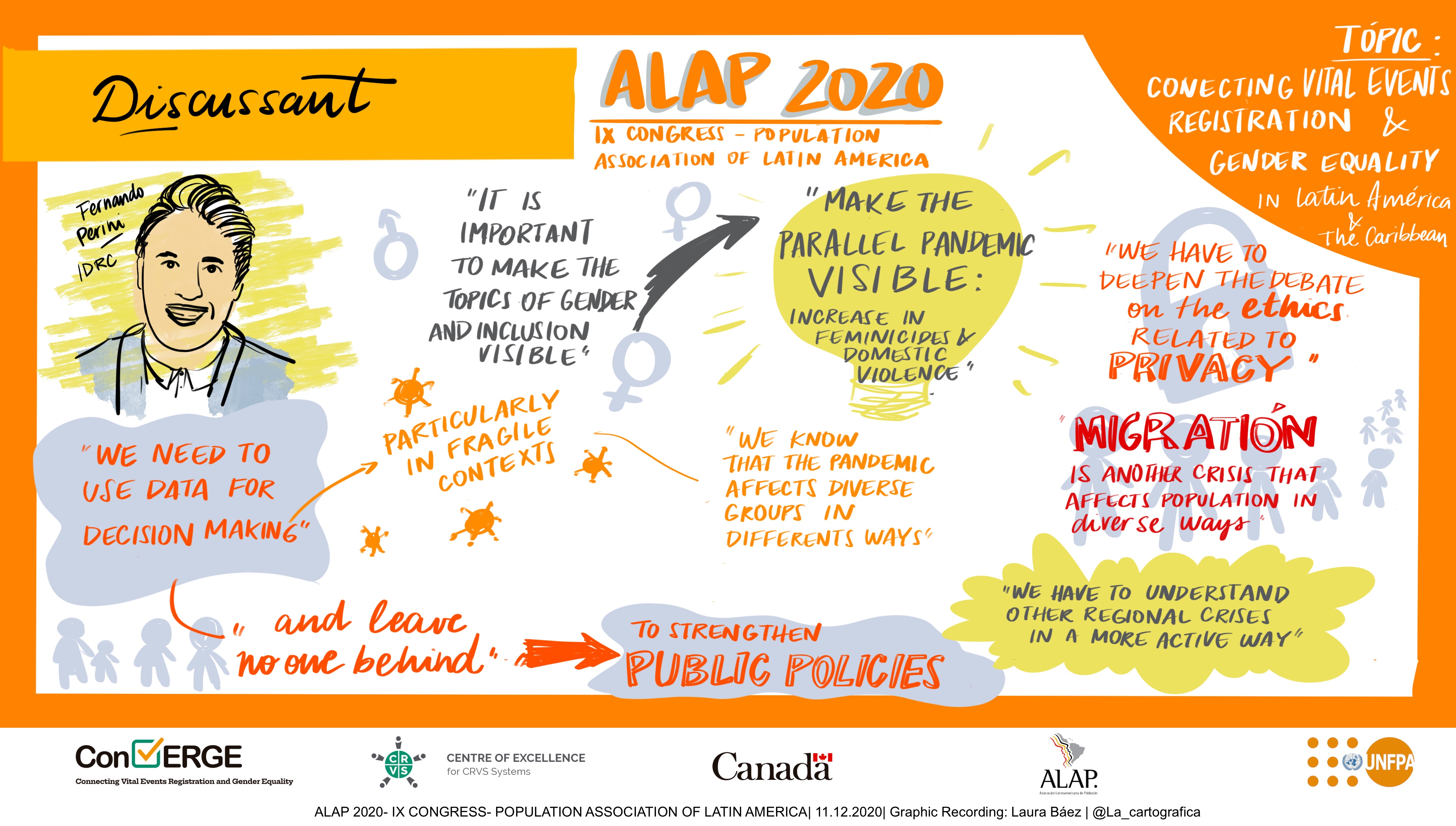
The discussant, Fernando Pierini from the International Development Research Centre (IDRC), stressed the importance of civil registration and vital statistics for public policies, the advancement of the ‘leave no one behind’ and gender equality. He also raised concerns about the lack of adequate data on ethnicity in vital statistics and advocated for population data systems to be increasingly open to the public.
Registration of deaths due to COVID-19
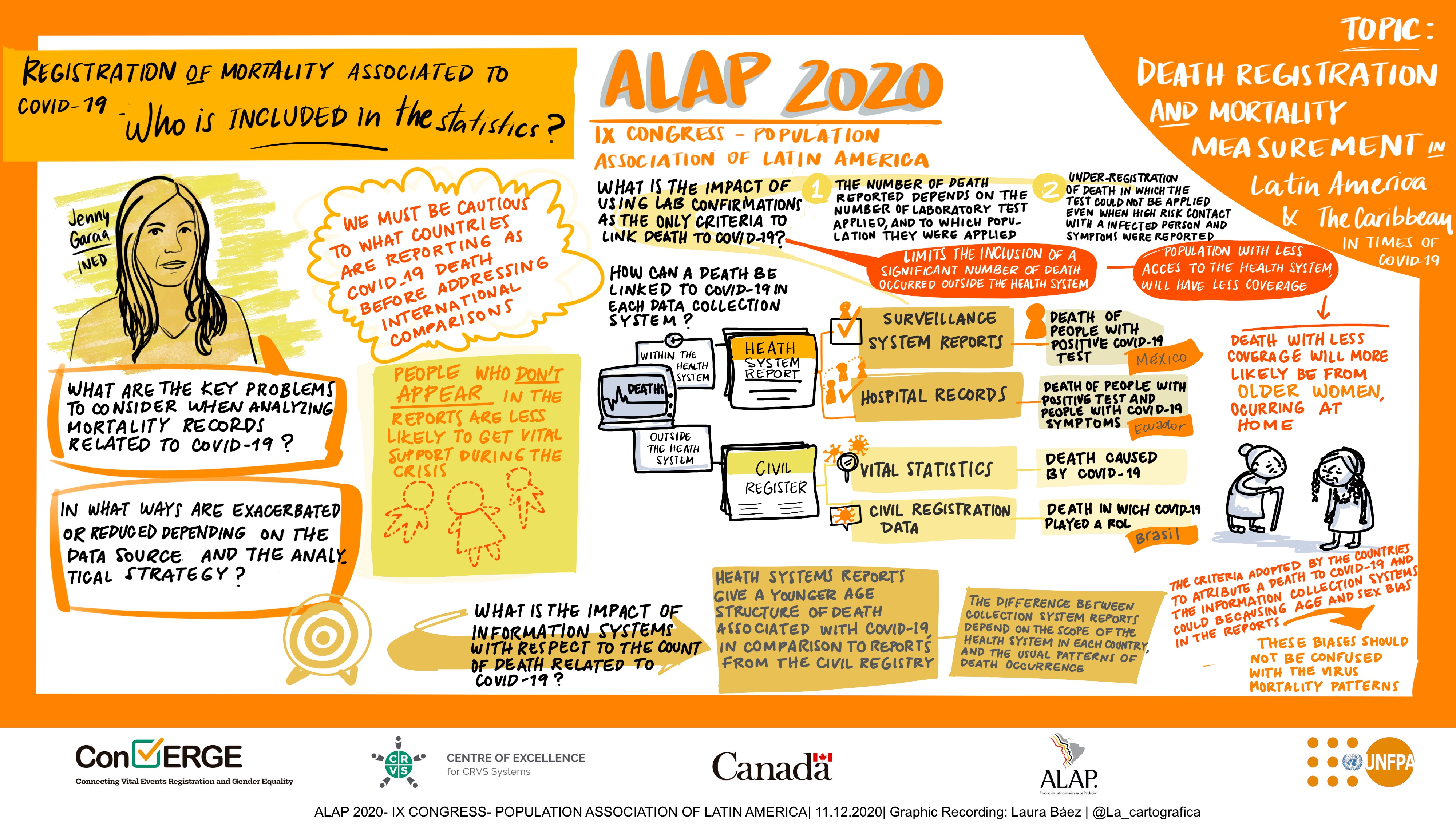
Jenny García from the Institut National d ́Études Démographiques (INED) presented her co-authored paper addressing data issues associated with COVID-19 mortality analysis and the extent to which these issues are exacerbated or reduced across data sources. Examining the data from Brazil, Ecuador, and Mexico, she pointed out the limitations of the available sources to studying mortality associated with COVID-19 and provided recommendations for the usage of death registration data to implement and monitor public policies.
Impact of COVID-19 on mortality in Chile

Gustavo Villalon (independent researcher) and Ninoska Damianovic from the Universidad Austral de Valdivia, presented a detailed analysis of the evolution of COVID-19 mortality by region in Chile. The researchers showed that COVID-19 was the leading cause-of-death in the country between May and July 2020 and persisted in the top-three causes of death until October 2020, yet with significant differences by age, sex, and region.
Impact of COVID-19 on mortality in Peru
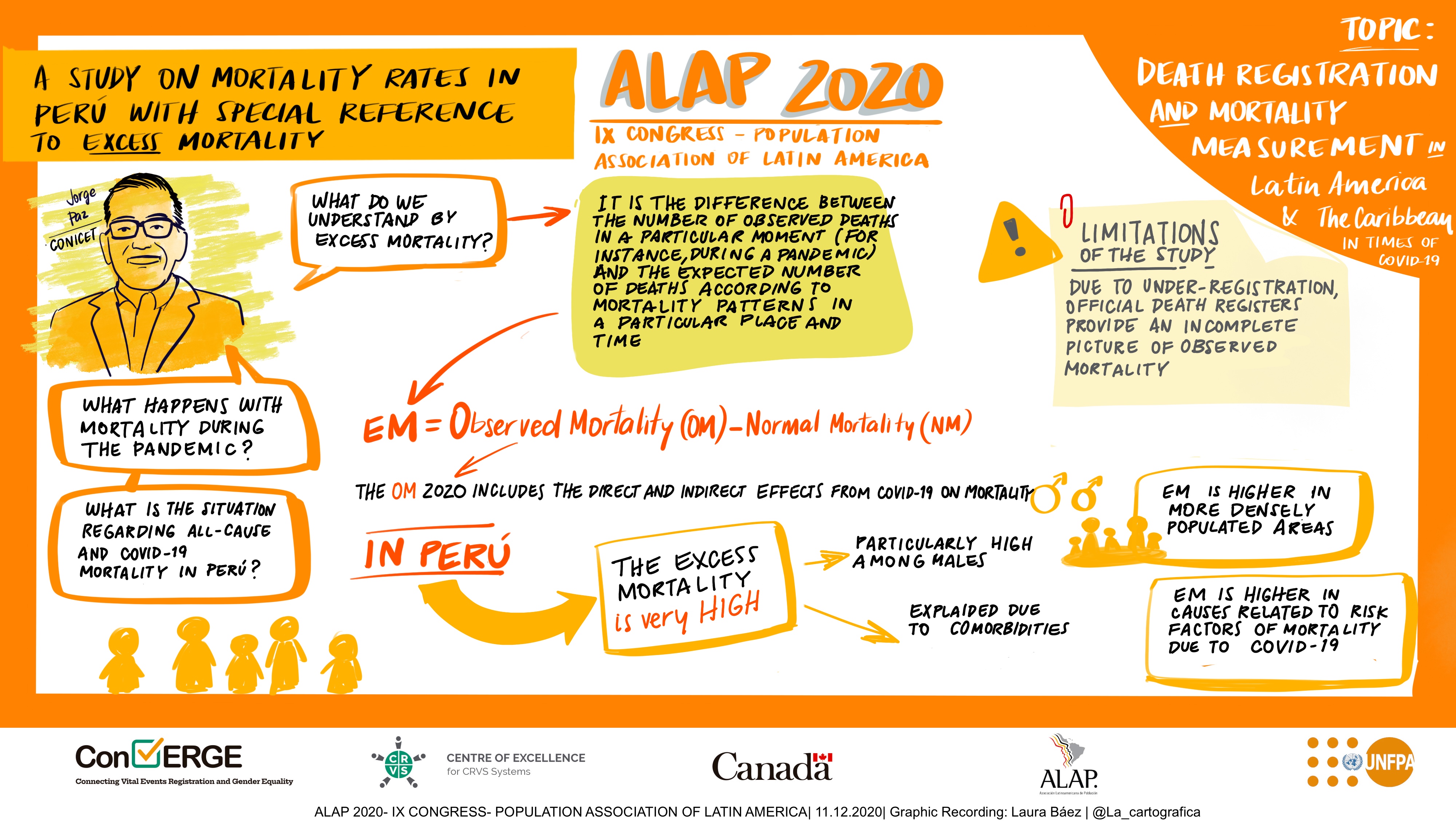
Jorge Paz from CONICET and the Universidad Nacional de Salta in Argentina presented his work on COVID-19 mortality and excess mortality in Peru by age, sex,region, educational level and type of health insurance. He concluded that, despite potential factors affecting the under-registration of deaths in the country, the impact of COVID-19 mortality has been very high, particularly in most populated areas.
COVID-19 fatality rates in Latin America
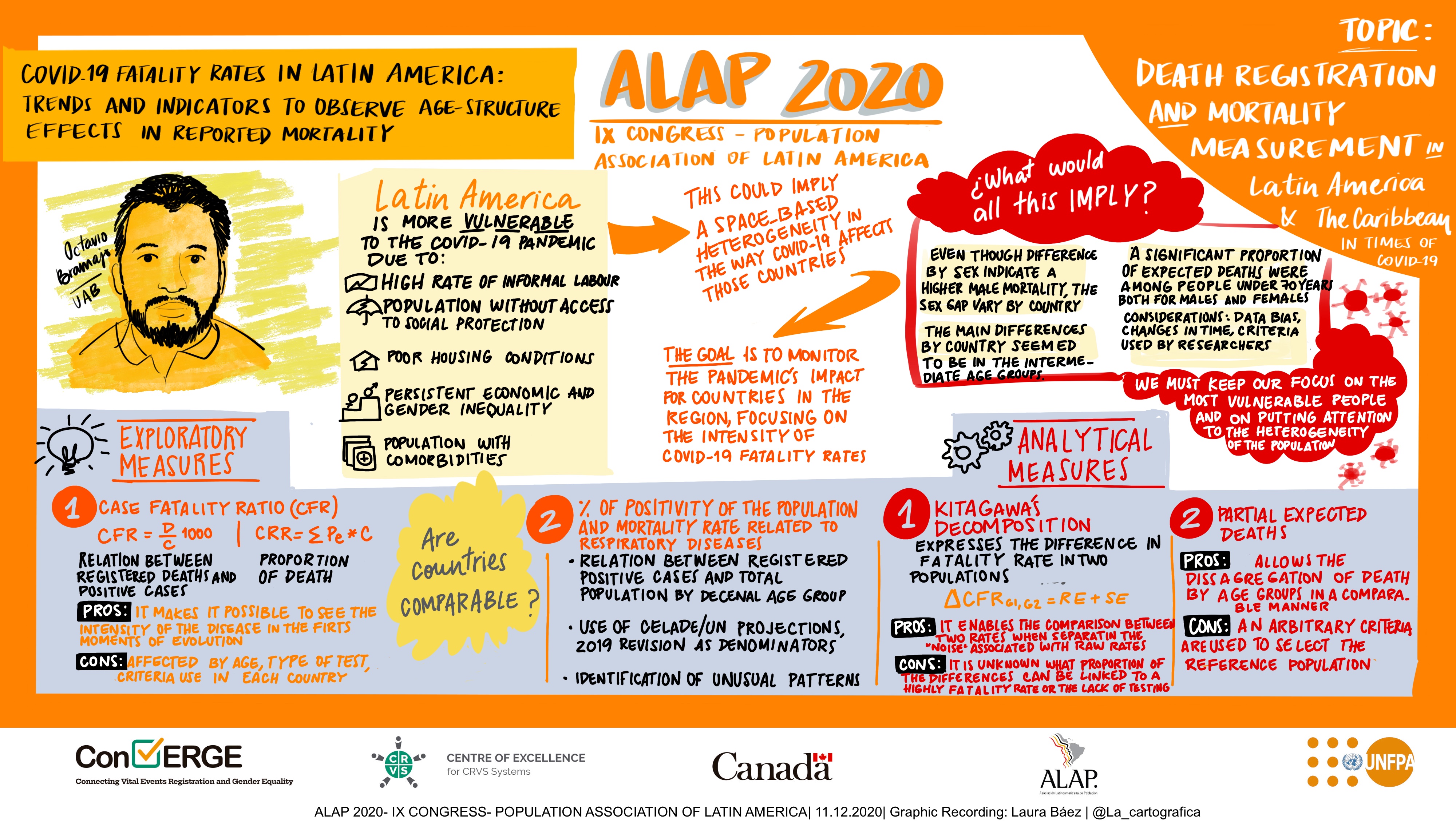
Octavio Bramajo from the Center for Demographic Studies at the Universitat Autònoma de Barcelona focused on the effects of the sex-and-age structure of populations on the COVID-19 case-fatality rates in six Latin American countries, using data from COVERAGE-DB. Case-fatality rates should be examined with caution, he posed, as they are affected by countries’ population structure and testing capacity. He concluded that differences in overall case-fatality rates between countries, particularly among men, can be primarily attributed to differences observed among the 40 to 70 years age group.
Who is included in the statististics?

Final remarks were made by the discussant Piedad Urdinola, who motivated further responses from and interactions with the speakers.
The IX ALAP Congress was in December 2020. Both sessions allowed experts to understand and discuss the importance of data to leave no one behind in Latin America and the Caribbean especially during the COVID-19.
